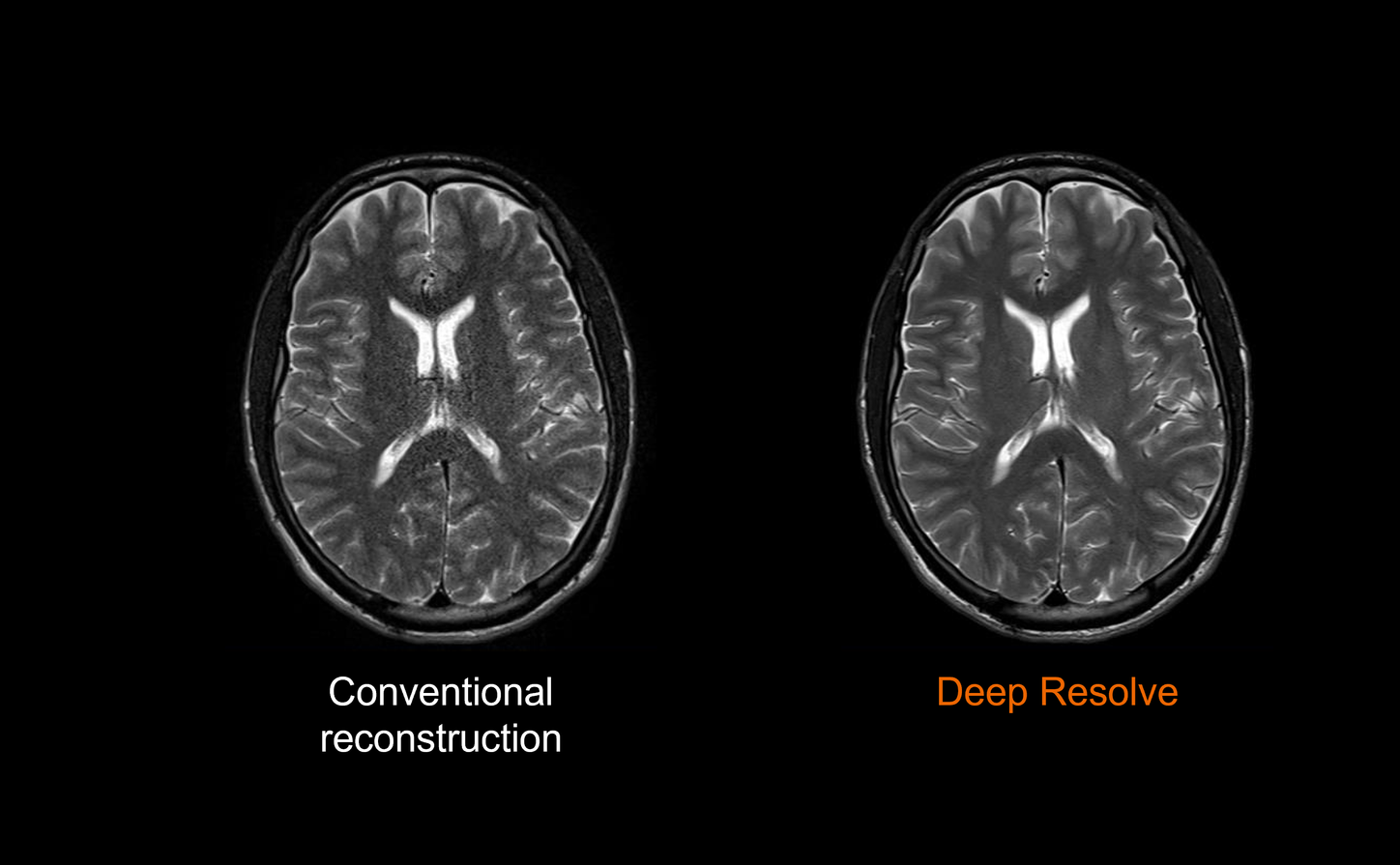
Highly accelerated MR acquisitions usually result in strong noise contamination when using conventional reconstruction. With Deep Resolve, previously unthinkable acceleration factors can be applied, with consistently high image quality.
Siemens Healthineers presents functionalities powered by Artificial Intelligence that accelerate and improve Magnetic Resonance Imaging. The quality of MR imaging is defined by the trade-off between scan time, resolution and image noise. Improving one of these pillars usually requires compromising on one of the others. Deep Resolve, a deep learning solution for image reconstruction, can eliminate this dilemma. It enables clinicians to choose a significantly faster scan time while reducing noise and keeping the same resolution or even increasing image quality. Deep Resolve does not merely improve the final diagnostic image but starts at an even earlier stage: it works with the scanner’s raw data to use AI algorithms to improve the image from the first steps of image reconstruction.
Speeding up scan time is especially valuable for patients who feel uncomfortable in MRI scanners, which is often the case for children. Deep Resolve has great potential to shorten scan times by hooking into the very first step of image creation with all the available raw data. Deep Resolve algorithms can therefore speed up scan times for brain MRI by up to 70 per cent while doubling the resolution.1 Adding unique Simultaneous Multi-Slice (SMS) technology from Siemens Healthineers can accelerate scan time further, by up to 80 per cent.1
“We can enable our customers in the NHS and private healthcare organisations to use their scanners in ways we have not seen before,” says Alistair Piggot, Magnetic Resonance Business Manager at Siemens Healthineers GB&I. “Knee imaging in MRI usually takes about ten minutes on a 3 Tesla system.1 Using Deep Resolve algorithms, we got that time down to under two minutes—with the same image quality and diagnostic value.”
Dr Saif Afat, MD from University Clinic Tuebingen, Germany, adds: “It really is quite striking to see the impact of Deep Resolve on clinical MR imaging in so many different areas. Let us take prostate imaging as an example: we are going from 10:21 minutes for the T2 TSE in all three orientations with conventional reconstruction to just 03:50 minutes with Deep Resolve. The image quality is the same or even superior. To me, that is the new upcoming indispensable technology for my clinical routine.”
Deep Resolve is not limited to a particular region of the body and thus can help in almost every diagnostic procedure using MRI. It consists of different algorithms that can be combined. Deep Resolve was trained with thousands of curated data pairs by comparing data from unaccelerated and accelerated scans, as well as image pairs with higher and lower resolution. Throughout the reconstruction process, the system performs an automatic mandatory data consistency check to ensure the diagnostic value and quality of the image. The technology was first introduced in 2020. Deep Resolve will be rolled out to cover the entire MRI portfolio.
Deep Resolve uses individual noise maps for every scan. These help the algorithm to identify areas in the final image that might be strongly affected by noise, and to denoise the image with high precision. As a result, an image with greatly reduced noise can be generated in the same scan time.